Where are they now? Young Scientist winners from Cork, 10 years on
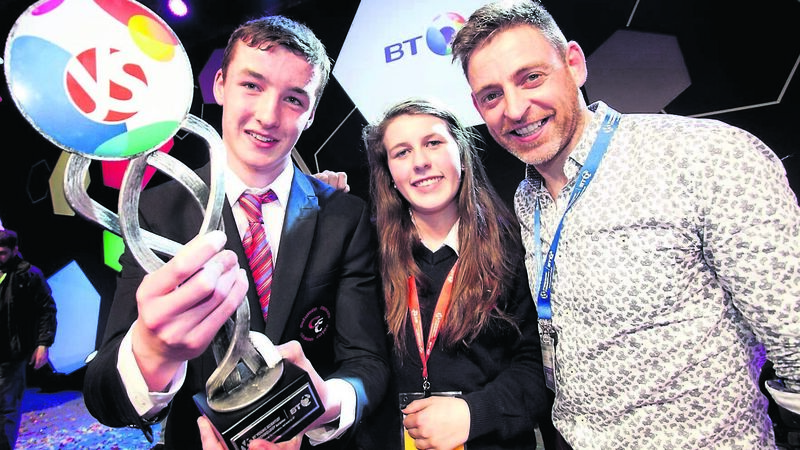
Ian O’Sullivan and Eimear Murphy, pupils from Colaiste Treasa, Kanturk, Co Cork, after being announced as winners of the BT Young Scientist & Technology Exhibition in 2015, pictured with their proud science teacher Danny O’Donovan
A decade ago, when they were pupils at Coláiste Treasa in Kanturk, Eimear Murphy and Ian O’Sullivan jointly won the 2015 BT Young Scientist of the Year.
Their project, entitled Alcohol Consumption: Does The Apple Fall Far From The Tree?, looked at how teenagers’ drinking habits are influenced by their parents and not just their peer groups.
Fathers’ drinking patterns were found to have a significant effect on teenagers’ consumption of booze, while mothers’ attitudes towards drink were influential on their teenage children.
I caught up with Eimear and Ian ten years on, to see how their lives had progressed since.
Eimear, who is training to be an accountant, says that taking part in – not to mention winning – the Young Scientists’ competition really stood to her in interviews over the years.
“It’s something different to bring up in an interview. Even just taking part in it was helpful. People are always interested to hear about it,” she said.
Eimear, 26, comes from a family of teachers and could have taken that career route. “Doing the science project made me realise that teaching wasn’t for me,” she said.
“I’m more interested in statistics and accounting analysis. The project opened up the possibility of doing other things. Even though it was a science project, we used a lot of statistics in it. I really like analysing figures.”
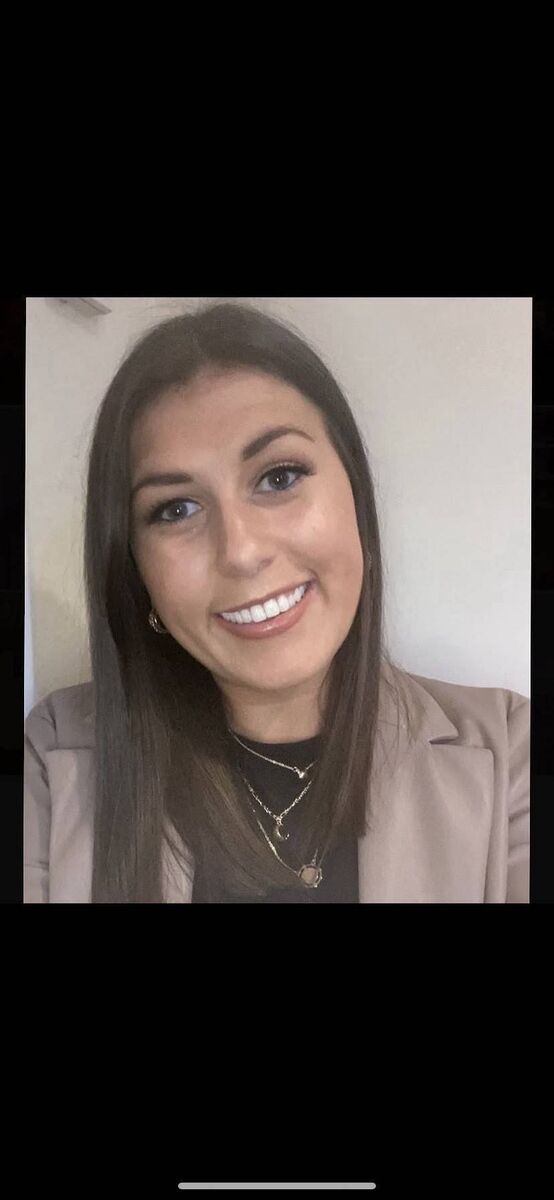
Eimear studied business at the University of Limerick for four years, followed by a Masters at UCC. She is now in her final year of the graduate programme in accountancy, on a training contract with an accountancy firm in Cork.
After the science project was published, Eimear and Ian presented their findings in the Dáil.
“It was actually mentioned in a report by Leo Varadkar, who was Minister for Health at the time,” said Eimear. “It was always our plan to publish the project, even if we hadn’t won it. Because we were so interested in the results we got, the next logical step for us was to have it as widely known as possible.”
As if addressing the Dáil wasn’t exciting enough, Eimear and Ian got to travel abroad with the project. They went to Milan in Italy in 2015, where they represented Ireland in the European Union Contest for Young Scientists. They won a prize there. A year later, the pair went to the Intel International Science and Engineering Competition in Phoenix in the U.S.
“We didn’t win a prize there, but we would never have got to those places if it wasn’t for the Young Scientists’ competition.”
The then two young scientists were very much in favour of a minimum pricing policy for alcohol. They also suggested our policy-makers look to America where the legal age for consuming alcohol is 21. Eimear says that could result in young people starting to drink around 18 as opposed to the current legal age here of 18, with people starting to drink at 15 or 16.
Eimear has a year left to qualify as an accountant. “I have to build up enough experience as an auditor before I qualify,” she said. “At the moment, I’m auditing investment funds. After I finish that contract, I’d like to go down the funds accounting route and look into being an investment manager.”
Ian O’Sullivan, 26, now lives in Australia and works as a junior doctor for the South Metropolitan Health Service in Perth. He is based out of Fiona Stanley Hospital.
He is currently on a geriatric medicine rotation, looking after elderly patients with medical issues. Ian admitted: “I can’t say it’s closely related to our project.”
What did the Young Scientists win mean to his studies and career?
“Though I haven’t pursued a career in public health, the win and being involved in research early on really helped with research I undertook during my degree,” said Ian.
“In terms of my career, research experience is highly valued in the medical field.”
Since co-winning the competition, “a lot has happened. I finished secondary school, went to UCC, and worked for a year as an intern in various Cork hospitals, and moved to Australia.”
In terms of the future, Ian plans to stay in Australia for another year “with some travelling thrown in, before returning to Ireland to begin training. After that, I don’t have anything near a concrete plan and I’m hoping to figure it out later on.”
Ian is pleased that the science project he and Eimear worked on “spurred a conversation amongst our peers and their parents around alcohol consumption which I would see as a positive. In terms of influencing government policy, we spoke at an Oireachtas committee discussion regarding the Public Health Alcohol Bill in 2015.”
In his job, Ian, like anyone working in healthcare, sees patients suffering the effects of alcohol abuse, both acute and chronic.
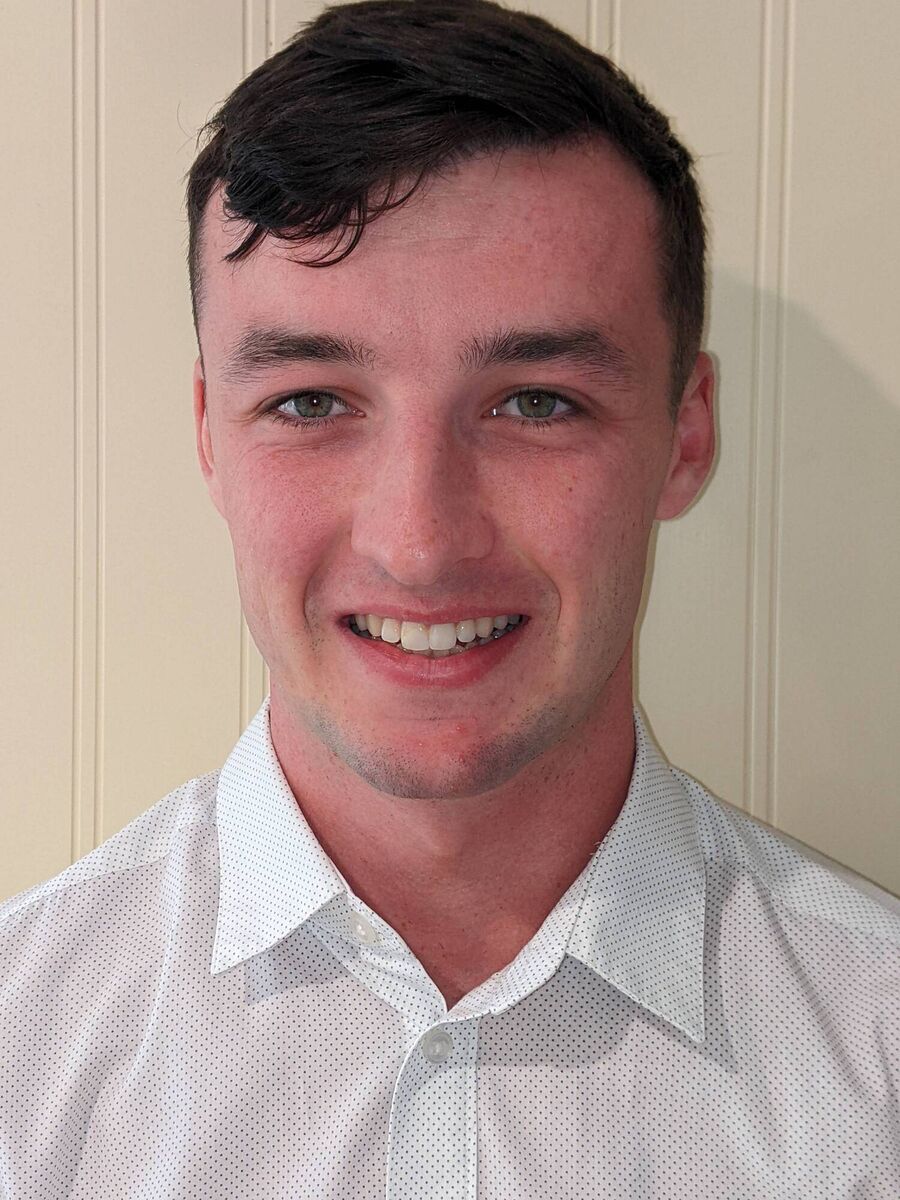
“I have worked in the emergency department where a lot of the presentations are either directly or indirectly related to alcohol. I have also worked on a hepatology team where a lot of the patients have alcoholic liver disease.” He adds that, as a junior doctor, he doesn’t have any influence on policy.
Living in Australia “is very different to living in Ireland in many ways, from the weather to the pace of life and the people. There are many things I like about living in Australia, but it also makes you realise all that you have at home, like family and friends,” said Ian.
“In terms of working in Australia, I would say the healthcare system is similar (to Ireland) but there are numerous perks to working here as a junior doctor including working less hours. It is generally less stressful (than in Ireland.)”
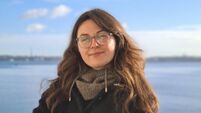
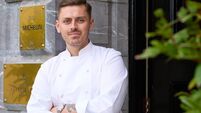
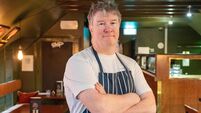
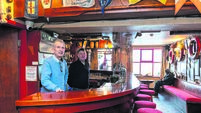



 App?
App?


